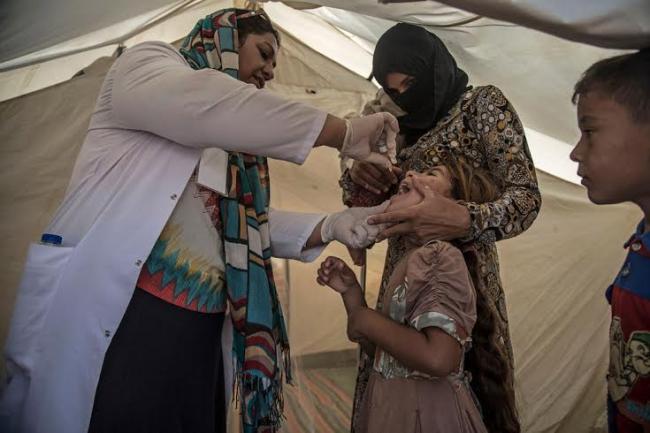05 Aug 2015, 06:45 am Print

“Despite warnings about the imminent closure of health services and the revision of 2015 plans to focus on the most basic priority health needs, funding is very scarce,” Tarik Jasarevic, spokesperson for the World Health Organization (WHO), said today at a press conference in Geneva.
Only $5.1 million out of the $60.9 million required by the health cluster has been received so far, he noted.
“The closure of more than 184 health services resulted in millions of refugees, internally displaced people and host communities having no access to critical care, including trauma care, nutritional case, primary healthcare, outbreak detection and management, immunization services and reproductive health care services.”
WHO is trying to find money from other regional funds and carrying out advocacy with donors, Jasarevic said. So far, contributions have been received from a number of countries, as well as from the UN Assistance Mission in Iraq (UNAMI) and the UN Central Emergency Response Fund (CERF).
Jasarevic warned that 5.8 million children need to continue to be vaccinated against polio in 2015 and 2016.
Overall, UN agencies and their partners are seeking $498 million to cover the costs of providing shelter, food, water and other life-saving services for the remainder of the year to those in need in Iraq. As of the end of July, only 15 per cent of this had been secured.
Photo: OCHA/Iason Athanasiadis
- Alarming projection: Global breast cancer cases could cross 3.5 million by 2050, shows study
- Exam stress to emotional distress: Study reveals the dark side of academic pressure
- Vegetarian diet linked to lower risk of five major cancers, study finds
- Ukraine’s health system under fire: Attacks spike 20% in 2025, WHO warns
- A dog’s loving lick turned deadly — She woke up without her limbs





-1763561110.jpg)
